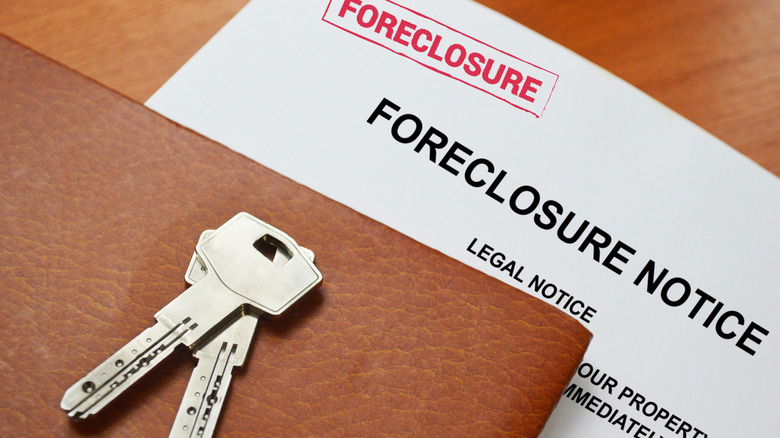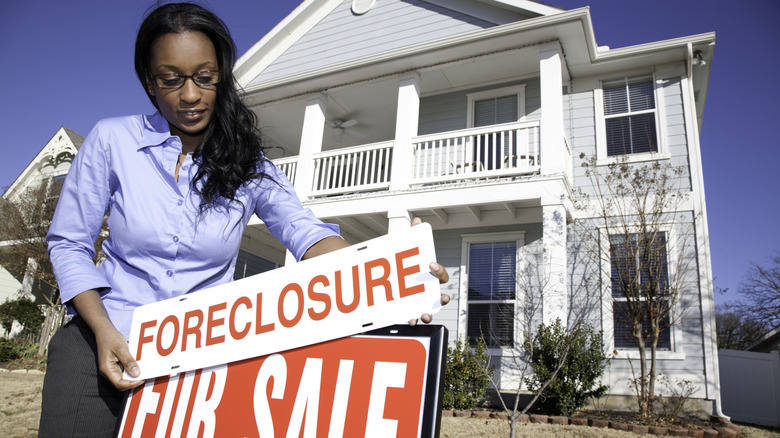The Fraudulent Foreclosure Scheme Homeowners Should Be Aware Of
New scams seem to be cropping up faster than ever — whether its fraudulent bank emails designed to steal account information or fake online shops selling non-existent goods. Most scams are designed to swindle people out of their hard-earned money. Lately, however, fraudsters have broadened their horizons, using foreclosure schemes to con people not only out of money, but in some cases their homes as well. If you're a homeowner struggling to keep up with your mortgage payments, it's important to know the warning signs to avoid becoming a victim.
Foreclosure schemes are a type of real estate scam, which targets homeowners that are past due on their mortgage payments and may be facing foreclosure. Posing as mortgage experts or foreclosure consultants, these fraudsters often claim they can help lower mortgage payments, repair credit, or negotiate with a mortgage provider in return for a fee. In some cases, they trick homeowners into signing over the deed to their home by promising to sell it back once the payments are caught up, or vowing to sell the home and share the profits. In a recent — and very public — example of a foreclosure scam, a Missouri woman attempted to auction off Elvis Presley' Graceland estate. Claiming his daughter had used the property as collateral on a $3.8 million loan, she used forged documents and fake identities to schedule an auction of the property in an attempt to extort the money from the family. Fortunately, the scam was revealed before the auction was scheduled to take place and the woman was sent to prison.
How to protect yourself from becoming a victim of a foreclosure scheme
Imposter scams, such as foreclosure scams, are the most prevalent type of scam. In 2024, 2.6 million consumers reported being victims, with losses totaling $2.95 billion, according to the Federal Trade Commission. While the sophistication of these scams makes it easy for anyone to fall victim — especially if you're worried about losing your home — there are things you can do to prevent it from happening. If you're behind on payments, educate yourself on everything you need to know about going into foreclosure. You should have an understanding of what it means to be in default, what rights you have if your home is in foreclosure, and when to seek legal assistance.
Also, be aware of red flags that can alert you to possible scams. For instance, only your mortgage provider can modify a loan, so be suspicious of anyone else claiming to do so. Be wary of third-party experts promising to lower your payments or anyone asking you to sign over the deed to you home to forgive your debt. If you're having trouble making mortgage payments or received a foreclosure notice, the first step is to reach out to your lender directly so see what can be done. If a foreclosure is already underway, there are free government services you can contact for guidance during the process. The Department of Housing and Urban Development has a list of approved counselors who can assist. Finally, if you suspect you've been the victim of a scam, it's essential to report it to the FTC as soon as possible.

